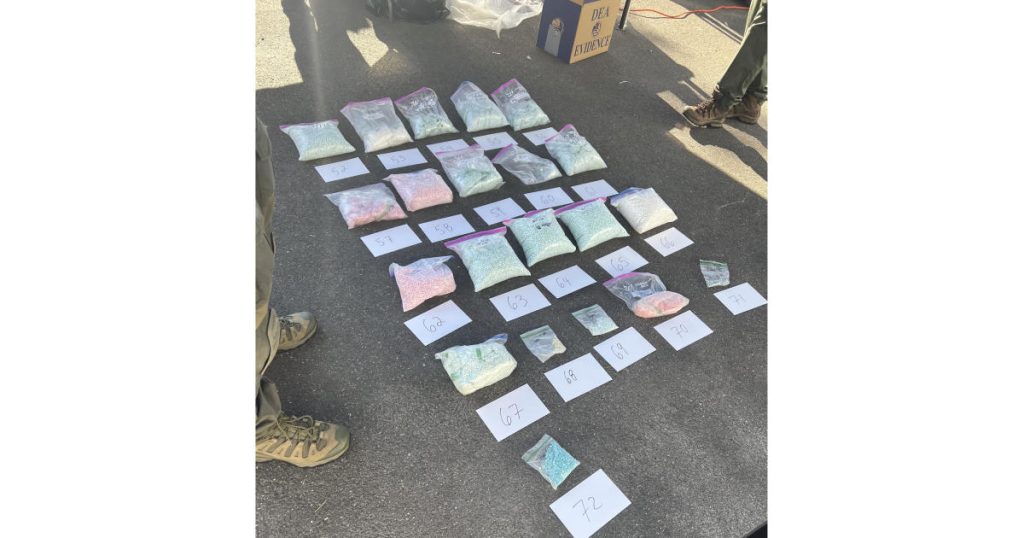In a nondescript garage in Connecticut, a New Haven man manufactured hundreds of thousands of counterfeit pills containing methamphetamine, opioids, and other illicit drugs, which he distributed in the U.S. and to local dealers. Federal law enforcement officials announced indictments against the man and six others, calling it one of the largest counterfeit pill busts in New England. The man, Kelldon Hinton, ran the operation from a rental garage in East Haven, using drugs and pill presses purchased from sellers in China and other countries. He shipped packages through the U.S. mail and supplied pills to associates in Connecticut.
Hinton sold counterfeit oxycodone, Xanax, and Adderall pills containing methamphetamine and protonitazene, a synthetic opioid stronger than fentanyl. The tablets also contained dimethylpentylone – a designer drug mislabeled as ecstasy – and xylazine, a tranquilizer known as “tranq.” Following arrests on September 5, authorities seized hundreds of thousands of pills, two pill presses, and manufacturing equipment capable of producing 100,000 pills per hour. A federal public defender for Hinton did not immediately respond to requests for comments, and federal, state, and local authorities participated in the investigation, including the DEA, FBI, and U.S. Postal Inspection Service.
Connecticut U.S. Attorney Vanessa Roberts Avery acknowledged the challenges law enforcement faces in combating synthetic opioids. Fake prescription pills containing fentanyl and other potent opioids contribute to high overdose rates nationwide. Stephen Belleau, acting special agent in charge of the DEA’s New England division, emphasized their commitment to pursuing drug traffickers distributing harmful substances. Authorities discovered Hinton through an unnamed source in June 2023, leading to a thorough investigation that involved parcel surveillance and undercover purchases from Hinton’s dark web operation.
In addition to Hinton, prosecutors charged six individuals from Connecticut in connection with the counterfeit pill operation. Hinton, Payton, and Ogman are detained, while Harris, Stephens, Echevarria, and Tyson are released pending trial. Hinton’s criminal history dates back to 1997, including convictions for assault, larceny, and drug sales. The CDC reported over 107,500 overdose deaths in the U.S. last year, slightly down from 2022 figures. The country’s opioid crisis has claimed over 1 million lives since 1999, with the majority of fentanyl entering the U.S. originating from Mexican cartels and chemicals sourced from China.
Major news outlets like “60 Minutes” have highlighted the devastating impact of fentanyl-related deaths in the U.S., which exceed military casualties from Vietnam, Iraq, and Afghanistan combined. The proliferation of counterfeit pills containing fentanyl poses significant risks and challenges for law enforcement and public health officials. The alarming statistics underscore the urgent need for comprehensive strategies to address the opioid epidemic, including coordinated efforts to disrupt drug trafficking networks and increase access to treatment and prevention services. The case in Connecticut sheds light on the sophisticated operations of individuals manufacturing counterfeit pills and distributing them across the country.


